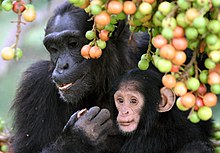 |
| Public Domain |
Whereas there used to be only 12 zodiac signs to choose from, now there's a thirteenth one on the horizon. And if that weren't confusing enough, the inclusion of this extra sign might shift the calculations of all others. Therefore, a Pisces may no longer swim, nor a Leo roar.
Blame Ophiuchus - Greek for "Snakeholder" and known as "Serpentarius" in Latin. This constellation is northwest to the center of the Milky Way - its southern part located between Scorpio to the west and Sagittarius to the east. Although Ptolemy was fully aware of its existence, he nevertheless persisted with a fixed and abstract description of a zodiac with 12 segments of 30 degrees each. This neatly-packaged, yet inexact interpretation ignores not only Ophiuchus, but also the changing positions of all other constellations with respect to Planet Earth.
What is it about Ophiuchus that Ptolemy and many other astrologers seem to find so compellingly taboo? Is it that Ophiuchus is the only constellation that seems linked to an actual person? Is it that this actual person, called Imhotep in Egyptian and Asclepius in Greek, supposedly learned human medicine by watching snakes share healing herbs with one another? Is it long-term superstition regarding the number 13?
Or was it just so much easier to work with 12 tidy "boxes" than with 13 less standard ones? After all, the addition of Ophiuchus could shake up our familiar astrological personas faster than one can spell Ptolemy. Aires would now be from April 19th to May 13th, etc.
But all is not lost! The alleged gifts of those born within the period of November 30 through December 17 can add zest to the overall zodiac. These include vivid premonitions, dream interpretations, lofty ideals, the quest for peace and harmony, a pursuit of higher education and wisdom, and the attraction of good luck and fruitful blessings. Who could ask for more?
Resources
http://the-red-thread.net/ophiuchus2.html
http://en.wikipedia.org/wiki/Ophiuchus
http://en.wikipedia.org/wiki/Sidereal_zodiac
http://professorastrology.com/The%20Professor.htm





